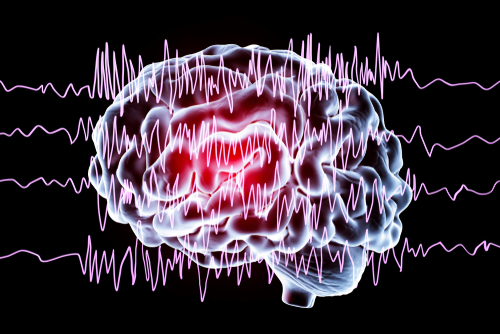A traumatic brain injury (TBI) is an injury that occurs when external force injures the brain. The Diagnostic and Statistical Manual of Mental Disorders, Fifth Edition (DSM-5), when clinically significant, refers to TBI as it is diagnosed as major neurocognitive disorder or mild neurocognitive disorder due to traumatic brain injury. The severity of a TBI is dependent upon several factors (e.g. force of the impact, nature of the injury, etc.). There are several common events that could cause a TBI, such as sports injuries, violence, falls, explosive blasts, vehicle-related collisions, and other combat injuries. There are many complications and symptoms that could occur with TBIs. Please note that not all blows to the head will inevitably cause a TBI. An individual with a TBI will experience TBI symptoms regardless of if he or she suffers a mild TBI, commonly referred to as a concussion, or a moderate to severe TBI. Every individual is different, and each person that suffers from a TBI will experience a unique combination of symptoms. The presenting TBI symptoms will have varying levels of severity and will likely last differing lengths of time.
Cognition and Confusion
Cognition, as defined by the Oxford English Dictionary (OED) is “the mental action or process of acquiring knowledge and understanding through thought, experience and the senses.” Cognitive abilities include, but are not limited to one’s concentration, attention, memory, problem solving, decision-making, communication, organizational planning, and impulse control. Depending on what region of the brain the injury affects, an individual could experience cognitive consequences after suffering a TBI.
One of the most widespread side effects of a TBI, often regardless of its severity, is confusion. There are a variety of reasons why an individual will experience confusion after suffering from a TBI. After an individual sustains a TBI, his or her ability to process and understand information can be adversely affected. This can directly lead to an individual experiencing increased difficulty regarding his or her communication abilities (e.g. inefficient word retrieval, inability to form coherent sentences, etc.), perpetuating and in some cases, exacerbating one’s levels of confusion. TBIs can also affect one’s non-verbal communication abilities (e.g. facial expressions, body language, tone of voice, etc.), which can lead to further confusion. There are, however, a variety of treatments that can help an individual recover from a traumatic brain injury.
For Information and Support
If you are concerned for yourself or a loved one in regards to substance abuse and/ or addiction we recommend reaching out for help as soon as possible. If left untreated, substance abuse can result in long lasting and potentially life-threatening consequences. Keep in mind: you are not alone! There is an entire network of professionals that are available to help and support you and your loved one throughout the recovery process. The earlier you seek support, the sooner your loved one can return to a happy, healthy, and fulfilling life.
Please do not hesitate to reach out with any questions regarding our specific program at Haven House Addiction Treatment and/ or general substance abuse and/ or addiction treatment related information. Our highly trained staff is readily available to discuss how we might best be able to help you and your loved one. We can be reached by phone at 424-258-6792. You are also welcome to contact anytime us via email at admissions@hhtxc.com.



